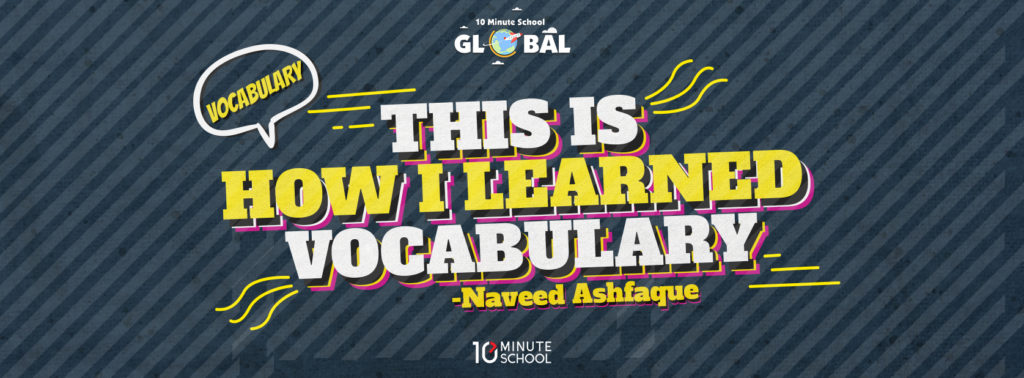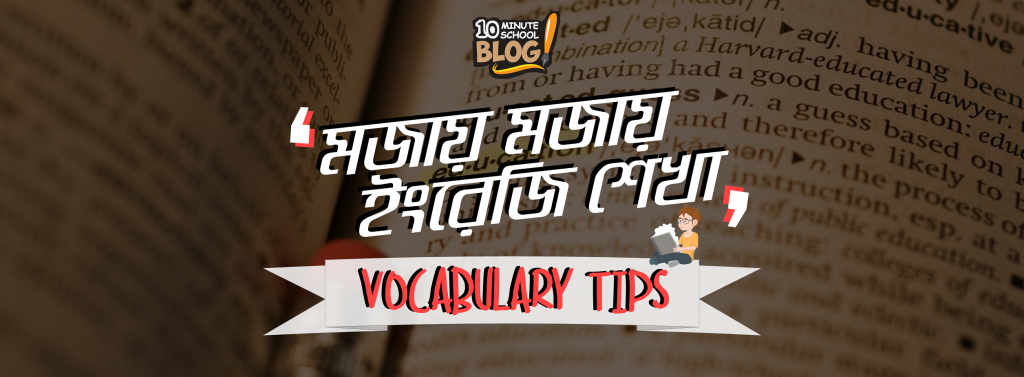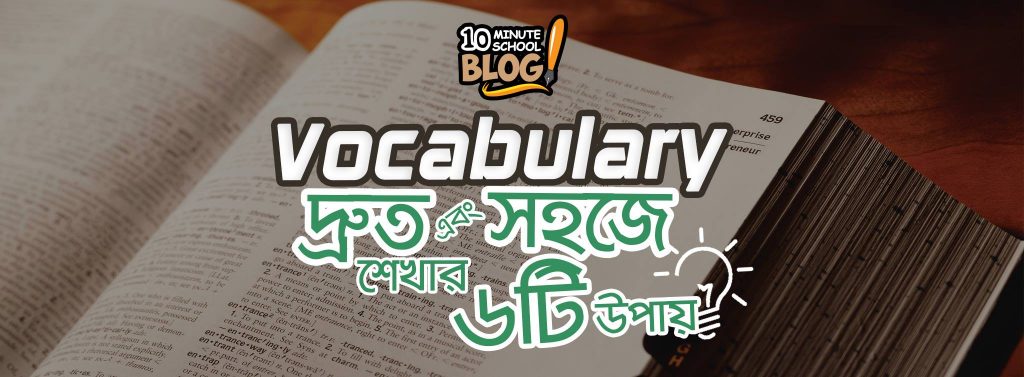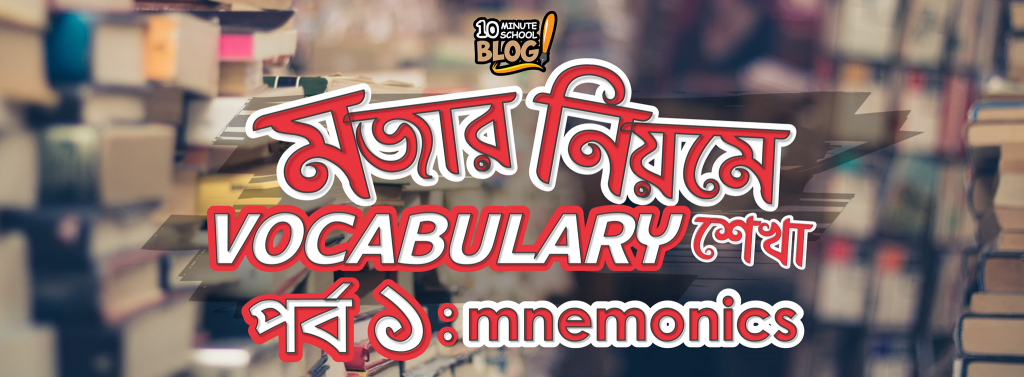- Don’t have time to read? Then give it a listen.
Having a good vocabulary is like having a hefty load of weapons in your arsenal during a war. Learning vocabulary can be monotonous and in most cases ineffective. Anything can be acquired if it has fun or joy involved in it. The same can be said for English vocabulary. Apart from this, the importance of a good vocabulary is beyond saying. A good grasp of English vocabulary is most likely to improve your sense of comprehension, help to develop your persuasion and communication skills, and add quality to your writing. There’s no replacing the perfect word that fits the puzzle. In fact, these days how you use words and what words you use often help others perceive an impression about you. What I have devised from my personal experience and lending a few techniques I have mastered from my teachers and mentors is a fun and engaging way to learn vocabulary and incorporate it into our daily chit-chats and writing.
So, get ready to make colorful cards, underline books, make word chains and jump into Facebook comment wars to help enrich your English vocabulary.
Flashcard-ing
As cliche as it may sound, flashcards tend to be one of the best ways to enrich your arsenal of words. I personally suggest this to everyone until now, who has asked me for advice on increasing vocabulary.
My personal way to making flashcards is very simple and fun. Firstly, make the flashcards from chart paper. Best if you use colored chart papers. From a standard chart paper, you can expect to make 64 flashcards if you fold the chart paper in halves consecutively to the smallest rectangle.
Secondly, find the word that is bugging you. Look it up on the dictionary or any app of this kind. Now, on one side of the card write the word you were facing problems with. On the other side, jot down the meaning of the specific word and its part of speech. Finally, store them all together and practice them during your leisure or use them while preparing any writing submission.
 This is my personal collection of Flashcards. I always try to use the words and also use these while I’m composing an assignment and article or any written document. Also, the cards give me a wholesome feeling of having learned so many words.
This is my personal collection of Flashcards. I always try to use the words and also use these while I’m composing an assignment and article or any written document. Also, the cards give me a wholesome feeling of having learned so many words.
Flashcards serve as a way for creativity within the learning experience. So, feel free to experiment and explore with flashcards as long as it’s helping you learn. For more creative suggestions on making funky flashcards follow the below link
https://fluent-forever.com/create-better-flashcards/
Read and underline
The best way to grab words and know what they mean is to understand the context. The best way to guess a word is by understanding the context it has been put into.
Sometimes, the context reveals the word’s meaning. So, in order to have the endemic hunch of guessing or assuming the word’s meaning one must have the habit to read. Reading is of great help in such cases. It’s because the more words you’re exposed the better your understanding becomes of the context.
I followed this little tip and still do. The tip is to underline words, sometimes even sentences to get clarified on. You have to develop the habit of looking up a word and only then after a while, you can simply guess the word’s message through the context. The best way to apply this technique is to read story books. It will be a fun rad and also educational if you can bring in your time to look up the words you didn’t understand. Honestly, if it wasn’t for the Harry Potter series I don’t think I would have gotten over the fear of comprehending a new word I encountered on every page.
 I find myself enjoying mythology a lot. Percy Jackson is another favorite book series that I hold deep in my heart. Not only that, this book also helped me learn quite a few words I wasn’t acquainted to at all. Reading books will always open up more avenues to explore new words.
I find myself enjoying mythology a lot. Percy Jackson is another favorite book series that I hold deep in my heart. Not only that, this book also helped me learn quite a few words I wasn’t acquainted to at all. Reading books will always open up more avenues to explore new words.
Understand that it’s important for one to read and learn the meaning but the ulterior purpose here is not only to learn the meaning but to be able to fit the word you’re learning into several other contexts as per your necessity.
Forming word-chains
Forming word chains is a pretty tactful approach if you ask me. Many questions about why one should invest much time in plucking out words to read or how do you exactly get words to learn. This tactic sort of answers these two questions. How? Let’s say you want to express someone’s narrow-mindedness in a controversial yet humanitarian cause. Well, why not use the word parochial instead? Sounds professional and also fits the description very very well.
You can form word chains based on synonyms of the words, the antonym of the words or even keeping in mind the mood of what a word dictates.
Let me draw an example :
- Talkative-Chatty-Loquacious-Garrulous-Voluble-Verbose-Rambling
This is an example of a word chain through synonym as the common factor.
কোর্সটি করে যা শিখবেন:
সবার জন্য Vocabulary
Another example,
- Taciturn-Reticent-Inarticulate-Dour-Sullen-StandOffish
This is a word chain formed with the antonyms of the first chain.
So, we see that if you stumble upon 1 word you don’t understand, by using this method you can easily learn 14 new words in an instant. Another benefit of this technique is that retaining the meaning of the words isn’t that hard. If you can form a word chain with a familiar or a known word, chances are you’ll be using the words effectively.
Also, another tip would be to identify the parts of speech of each of the words in the chain. Thus, it becomes easier for you to understand where to use it and where to not.
 Find out the core word you want to dig deep into. Then, form a synonym and antonym chain. Voila! Now you have more than 5-6 words learned and ready for use. Start off with a known word that you know the meaning well off. Then the whole chain can be summed up to you just by seeing one familiar word and needless hassle to procure the meanings will be avoided.
Find out the core word you want to dig deep into. Then, form a synonym and antonym chain. Voila! Now you have more than 5-6 words learned and ready for use. Start off with a known word that you know the meaning well off. Then the whole chain can be summed up to you just by seeing one familiar word and needless hassle to procure the meanings will be avoided.
Here are some other effective ways you can follow as well
https://www.jocrf.org/resources/effective-ways-build-your-vocabulary
Use apps for leisure learning and Learn Vocabulary
Let’s admit that most of us pass our leisure time by scrolling through Facebook or needlessly going from one app to the other for being entertained. Something that happens afterward is that we realize that we wasted that leisure time without actually doing something. I was a prime victim of this practice. So, I downloaded a vocabulary app from the play store just to try it out.
আরও পড়ুন: 15 Great Tips to Improve Your Vocabulary
The next thing I know, I’m unlocking levels by guessing the meanings of randomly chosen words. While stuck in traffic, attending a party where I was the only kid of my age, or when I simply got bored of scrolling through Facebook, I was spending time in that app guessing what could a word mean without any preparation for the course. The funny thing is that I grew very fond of the app itself. As time went by, after countless failures on many levels I realized that the app actually helped me to learn quite a few words. There are many such free apps you can download for your android or ios. In fact, I still have the Vocabulary Builder by Magoosh installed on my phone as we speak. I believe this is one of the most foolproof and fun ways of learning vocabulary and making your free time a bit more productive.
 This app is something I would recommend to anyone willing to improve their vocabulary and have fun at the same time.
This app is something I would recommend to anyone willing to improve their vocabulary and have fun at the same time.
Engage yourself in using “new” words
What’s the point of learning a new chunk of words if you can’t actually use them or exactly don’t know how. That is why you have to engage yourself in using these. With practice, this word will come to you as easily as the words you use right now. There are a few techniques I applied.
Replace common day-to-day words with a synonym of better magnitude. For example, replace explain with elucidating, replace laugh with chuckle or grin, replace look with gaze/scrutinize, etc. The point is you use it according to situations instead of sticking to only one word.
Whenever you’re completing your homework/assignment you’ll see that mundane words often repeat. The repetitiveness makes the whole writing look generic. So, once you see this try replacing few of the repeated words with a synonym.
Now, there are other ways you can engage yourself in applying your vocabulary knowledge. This is rather fun and involves your time on social media platforms. So, this is something I was always encouraged to do.
So, every time I left a comment on Facebook or uploaded a photo with a caption, I made sure everyone on my friendliest knew that I knew so many words. Yes, passive taunts often came my way stating I was a show-off but I claimed to be pedantic.
I find it rather fruitful doing this. Why? How many hours on average do you spend on social media? Exactly, a lot! So, while leaving a comment on your crush’s pic make sure to let her know that you’re a person with a genteel word choice.
 This is a status I put up after my journey with Notre Dame College formally ended after my HSCs. You can see that, I could have easily summed it up in “easier” terms. But the words were perfect for the emotion and hence I used them.
This is a status I put up after my journey with Notre Dame College formally ended after my HSCs. You can see that, I could have easily summed it up in “easier” terms. But the words were perfect for the emotion and hence I used them.
These techniques worked for me and trust me, they can work for you too.
This article’s audiobook is read by Wasima Noor Iqra.
IELTS-এর ফ্রি ক্লাসে জয়েন করতে ক্লিক করুন এই লিঙ্কে: Book Your Free Class @ 10MS English Centre, Uttara
Check Out:
- সবার জন্য Vocabulary
- English Grammar Crash Course
- IELTS Course by Munzereen Shahid
- Microsoft Office 3 in 1 Bundle
- Microsoft Word
Visit 10 Minute School’s website www.10minuteschool.com
আমাদের কোর্সগুলোর তালিকা:
- IELTS Course by Munzereen Shahid
- ঘরে বসে Spoken English Course by Munzereen Shahid
- সবার জন্য Vocabulary by Munzereen Shahid
- Spoken English for Kids by Munzereen Shahid





আপনার কমেন্ট লিখুন